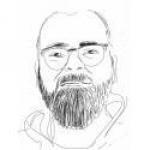
Accordingly, since I began working in the field as a graduate student, I have seen a lot of sociologists of science being invited at our conferences and our seminars. They presented their works, some of which having only indirect connections with economic subjects, and listened to what we have to say about the history of economics. In many ways, the pinnacle of this approach was reached with the 2009 HOPE conference at Duke University “The Unsocial Social Science: Economics and Neighboring Disciplines Since 1945”, where historians and sociologists of many fields in social science came to write about the history of economics seen from the perspective of the other disciplines. These contributions were supplemented by other papers by people who have been trained and socialized within our community (for instance, Ross Emmett, Tiago Mata, JB Fleury and Teresa Tomas), even if for some of them, their recent works often go beyond the traditional boundaries of the history of economics. Still, when I see these kinds of interdisciplinary events, I am left with some questions about the reciprocity of these collaborations.
We value the works of historians and sociologists of science, but what do they think of us? Do they see us as these fools who still practice history as a disciplinary sub-field? Do they think that all the work that has been done in recent history of economics has created any valuable knowledge at all? And how do they perceive those who among us have tried to bring a more externalist point of view in the history of economics? This is in the light of these many questions that I particularly enjoyed reading Marion Fourcade’s Economists and Societies, Discipline and Profession in the United States, Britain & France, 1890s to 1990s. In this book, Fourcade offers a very illuminating narrative about the way economics has been culturally shaped over the past century. By stressing national differences, she can subtly elaborate on the many ambiguities economists have entertained with political power, state interventionism and the changing of society in the period under scutiny. This is a very rich narrative, which would be worth commenting extensively, but here I do not want to focus much on the substance of her argument that on the way she makes her claims. Whereas Fourcade is mostly known as a sociologist and in her introduction asserts that most of her book is based on interviews, it must be said that a very significant portion of her work is actually historical in its content, and based on the reading of many previous works in HET, which she cites at length. Not only does Fourcade mention the more ore less recent “classics” (Blaug, Coats, Samuels, Goodwin, Weintraub, Mirowski, Morgan, Backhouse, etc.) but she also pays attention to the works of the youngest generation of historians of economics: for instance she cites Edward Nik-Kah and our Tiago guy is mentionned twice! Even more strikingly, she quotes from a working paper by Lise Arena, which was presented in 2008 at a workshop I attended and where Fourcade served as a guest speaker. In other terms, what is really striking in her book is how her extensive knowledge of HET is integrated into a coherent story of the professionalization of economists in the 20th century, whereas we usually see more differences than uniformity in the work that has been done in our sub-discipline. Therefore, her book could also serve as a nice, if quite unusual, introduction to recent history of economics and as such, it is a very promising work for those who think that good history and good sociology of economics should necessarily converge.
So far so good. Now the bad news: a recent review article on Sylvia Nasar’s Grand Pursuit: The Story of Economic Genius by Orley Ashenfelter depicts Nasar’s whiggish depiction of the geniuses of the past as a contribution to the history of economics, which, Ashenfelter argues, economists would gain by pursuing more in the future. In Ashenfelter’s article, therefore, history of economics consists in reading the classics and giving it a spin and unsurprisingly, the paper does not refer to any serious work in the history of economics. If not for a reference to Ted Gayer’s study of the place of HET in graduate studies in HOPE, you would think that the author has never opened a history of economic thought volume in his life! So here we are: endless possibilities and a whole new horizon if we address the SSK community, complete ignorance if we decide that we should remain economists. This is how sharp this dualism is. In the meantime, Fourcade’s book should be worth reading for anyone.



